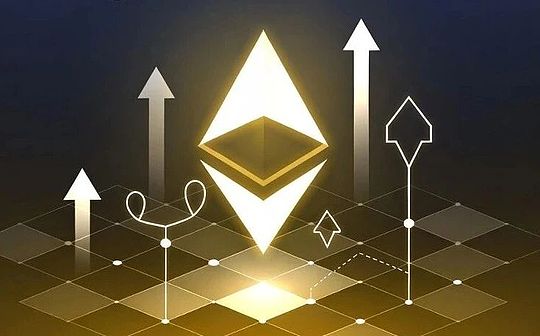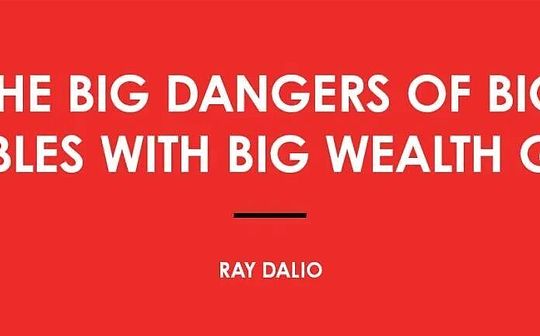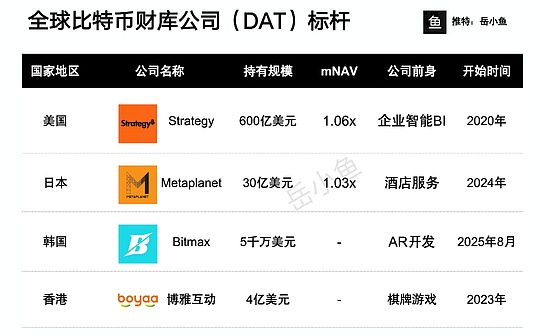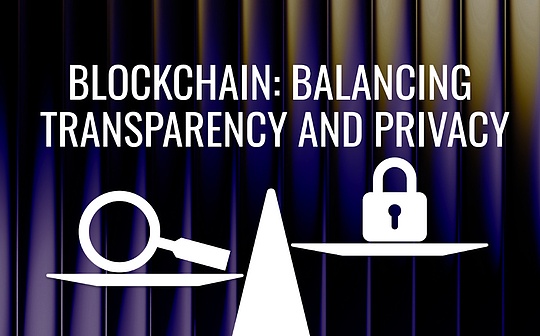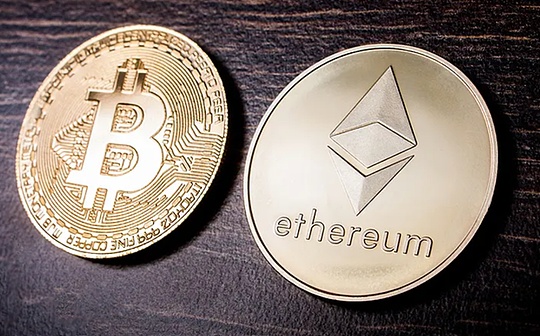
Author: Prathik Desai Source: Token Dispatch Translation: Shan Oppa, Bitchain Vision
After hearing the Decentralised.co host and Multicoin Capital co-founder and managing partnerKyle SamaniAfter the conversation, I had some new thoughts.
I spent countless hours explaining to my family and friends why I don’t think of Bitcoin as a “magic internet currency” bubble that is about to burst.Since I entered the crypto circle, they felt that I was doing something shameful.I told them that Bitcoin does not require a license—no bank or government can stop you from using it.I emphasize that it hasFixed supply——No one can quietly dilute its value.I also remind them that it is not controlled by a single authority and will not be used to meet political needs—unlike the government printing money at will when power is prioritized.
This is my basic position when talking about Bitcoin with others.And when I heard Kyle Samani drop this at the end of the show, I immediately thought of this:
“Bitcoin and Ethereum didn’t solve any problems.” It was not “not solving my problem” or “badly solved”, but simply said:No problem was solved at all.
This statement is impressive because it does not care about the details and background at all.However, I think,The truth is in the details.
When I hear “solving a real problem”, I don’t feel like this is going to reach some perfect ending.For me, it means making something that was otherwise impossible to work, or at least broadening the paths people can choose from.From this perspective, Bitcoin has indeed changed the rules of the game – it allows you to store and transfer value without a bank account, and will not be issued additionally by central institutions to repay debts at will.Ethereum allows strangers to execute transactions and rules collaboration without relying on a single company.
I know someone will refute: these systems are still bulky and expensive, and have not yet become a daily tool for billions of people.But this does not erase a fact-This possibility exists now, and it did not exist before that.
Here we will mention the saying that “Bitcoin is digital gold”.I have used it myself – scarcity, durability, freedom from government control.This kind of analogy is valid to a certain extent, but the monetary role of gold is not inevitable. It is shaped by various accidents and environments in history: war, colonial trade pattern, and central bank policies.As Kyle points out, this is the path dependency of history.
“If you reopen history in 2024 and assume we still have the current fiat currency system, gold will not be the same at all. The reason why gold becomes one is entirely because of its historical significance.” – Kyle
This is also why Bitcoin must rely on its own strengths rather than just borrowing gold historical stories.
Similar characteristics do not guarantee similar results.I can understand this logic, but I still don’t agree with the statement that “no problem has been solved”.Even if all marketing words are stripped away, Bitcoin and Ethereum can still do many things that other assets cannot do.Bitcoin has been used as a market capitalization$2.3 trillionThe assets create huge wealth.Ethereum is providing underlying impetus for exchanges, lending markets, games, etc.It is even the core track of stablecoins and the Decentralized Physical Infrastructure Network (DePIN) – both of which are the areas that the Kyle and Multicoin Capital teams are currently most interested.

Yes, I do think both BTC and ETH are flawed solutions.The payment role originally conceived as, Bitcoin is often replaced by faster and cheaper tracks, such as Solana or Tron-based stablecoins.Although Ethereum is open, it is still like a maze for novices – handling fees soaring, transaction lags, and user experience are prohibitive.butImperfect tools are still useful, they are precisely the driving force behind the next wave of progress.
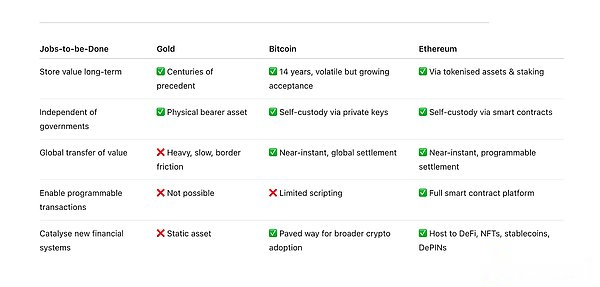
Since its launch, Ethereum has remained the most active and dominant chain on every continent.
This is exactly what is easily overlooked in the conclusion of “black or white”.Even if neither of these assets fully “fulfil” their original mission, they have broadened the design space.The pain points of Bitcoin in custody are the driving force that drives global innovation and easier solutions.The bottlenecks and governance debates in Ethereum have also prompted developers to build layer two networks (Layer 2), faster first-layer chains (L1), and even brand new architectures.As competition intensifies, Ethereum is forced to rethink and reshape its future path—which, as Kyle points out, has been missing in the past.
The internet started with harsh dial tones, static web pages and fragile emails, and then Google Docs and Netflix.Those early tools also did not solve problems perfectly, but without them, there would be no improvements that we are accustomed to today.
I think Bitcoin and Ethereum are similar “test platforms”.They prove that something is worth doing, even if it is not executed perfectly.And in the process, they create possibilities for others to do better.This “other” may be the Solana that Kyle bets on, or it may be a network that has not been released yet.Perhaps all of this will eventually in turn prompt Ethereum and Bitcoin to inspire their best.
If you want to know how Kyle sees Solana’s positioning in this mission and why he is willing to bet on the status quo, listen to this episode.Even if it is just to test your own perception of “problem solving”, it is worth listening to.

